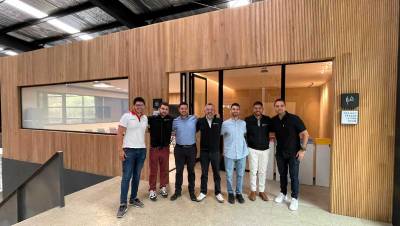Latin America. The need to be digitally competent, to know how to use and manage technology, is imperative. This is stated by experts in this field, who emphasize that, although before the pandemic there was already a digital inequality, the health crisis has made evident the "cracks" in many households.
Studies prove it, according to the latest We Are Social 2020 study around 3.2 billion people do not have access to the Internet in the world, which is equivalent to around 41% of the population. "Efforts are being made to minimise the gap, but the urgent need to digitise has become apparent," said Teresa Romeu, professor of Psychology and Education Sciences at the Open University of Catalonia, UOC.
However, digital competence does not only mean "knowing the tools", but also "knowing how to use the right technology in each situation", said Montse Guitert, also a teacher of these studies. The administration must "create favorable scenarios" so that citizens are able to acquire and manage this knowledge, suggests the teacher.
"The way we relate, access information and communicate is a reality that goes beyond the simple use of technology and that becomes a system of social, professional, academic relationship," insist the experts, who consider that it is fundamental, in addition to training, to have a "critical vision". Any of us can have a mobile phone, a computer or a tablet and even know how to handle them, but being digitally competent is much more. To acquire the necessary knowledge, they are committed to incorporating the methodological and technological aspects. "Only by addressing the two sides of the same coin do we guarantee its full acquisition and empower the person on the reason for using a certain tool," said Teresa Romeu.
How should we become digital proficient? There are five key points, according to the experts:
1- Be flexible and curious. "Given that technologies are constantly evolving, we are in a scenario of constant change," explained Guitert, who rules out the acquisition of immovable and permanent knowledge. "We need people who adapt to change continuously, with the ability and attitude to innovate constantly, who question things and reflect on them," added Romeu, who points out that people with these skills are curious and "explore" new technologies and integrate them into their day to day.
2- Overcome the three digital gaps: access, use and quality of use. The teachers demand that the administration help overcome the gaps in access to technology, but also those in use and quality of use. They believe that it is in the workplace where these last two are most detected. The worker has the necessary means for his work, but does not have the adequate knowledge. "It is essential to address training and updating," Guitert explained.
3- Apply and share. The digitally competent person uses ICT to "express their creativity and improve their professional performance". And not only does it do it individually, but it is also able to "connect, communicate and collaborate" with other people in digital environments. In these virtual scenarios, the professors point out, she has a "civic digital attitude" and, knowing the risks of technology, can "protect her personal data and take appropriate security measures."
4- Update in collaboration and using different channels. It is not necessary to acquire digital skills in a digital scenario, although it could be optimal, say the experts. "Sharing our doubts with colleagues, for example, allows us to learn among peers from the context in which these digital skills have their application," they give as an example. "It might seem obvious that the updating of digital skills should be conveyed through online training, but we believe that the channels should be the more diverse the better," explains Romeu. Thus, it lists that digital skills are acquired by online courses, in a face-to-face day, in a congress, in a gathering with friends, using open resources on the internet, etc.: endless opportunities to learn and share in any "family, social and work" environment. "Learning is not individual, but is learned among equals collaboratively and in different contexts," Guitert concluded.
5- Personalization. The teachers warn that not all people require the same digital skills. What's "obvious," Guitert said, is that currently "we all need a level." From that minimum, "global", everyone can move towards "specialization" in one competition or another. One of the reasons is labor, depending on the professional fields. "The update must respond to the real needs of each one," Romeu argued.
The pandemic has also served as a revulsive for many people in digitalization, placing the health crisis a "turning point" in this knowledge. Thus, the maxim that the experts have is fulfilled: "to be constantly trained and updated".
Text written by the Open University of Catalonia, UOC.



























Leave your comment